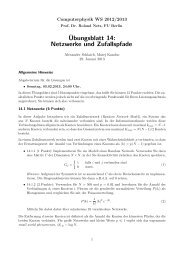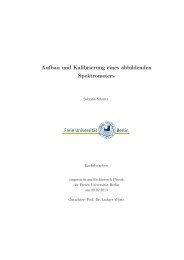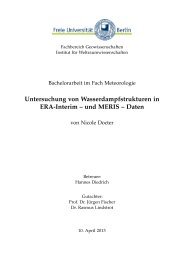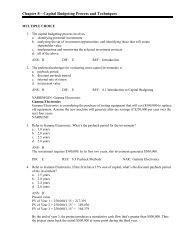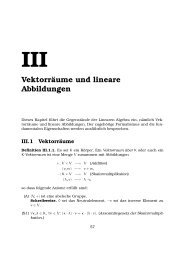General Self-Efficacy Scale - Userpage - Freie Universität Berlin
General Self-Efficacy Scale - Userpage - Freie Universität Berlin
General Self-Efficacy Scale - Userpage - Freie Universität Berlin
You also want an ePaper? Increase the reach of your titles
YUMPU automatically turns print PDFs into web optimized ePapers that Google loves.
http://cancercontrol.cancer.gov/constructs<br />
What is the scoring procedure for the GSE?<br />
Add up all responses to a sum score. The range is from 10 to 40 points. Or use a mean score,<br />
such as:<br />
COMPUTE SEFF = Mean (SE1, SE2, SE3, SE4, SE5, SE6, SE7, SE8, SE9, SE10).<br />
In many samples the mean had been around 2.9<br />
Occasionally, someone will not respond to some of the items. What do you<br />
recommend to do with missing data?<br />
Our rule of thumb is to calculate a score as long as no more than three items on the ten-item<br />
scale are missing.<br />
In SPSS, this is done by :<br />
COMPUTE SEFF = Mean.7 (SE1, SE2, SE3, SE4, SE5, SE6, SE7, SE8, SE9, SE10).<br />
However, there are also other methods such as regression, hot deck, or multiple imputations<br />
techniques (ask your advisor).<br />
How can I categorize persons as being high or low self-efficacious?<br />
We do not endorse the view that people should be categorized this way. There is no cut-off<br />
score. One could, however, establish groups on the basis of the empirical distributions of a<br />
particular reference population.One could do a median split, which is to dichotomize the<br />
sample, for example, at the cut-off point of 30 (if this is near the median in your sample).<br />
Can I use some original data to compare with my own data?<br />
Yes, there is an international data set as an SPSS SAV file that includes about 18,000<br />
respondents. Available for free download at:<br />
http://www.fu-berlin.de/gesund/gesu_engl/world_zip.htm<br />
What are the psychometric characteristics of the GSE?<br />
It depends on the sample and the study context. There are more than 1,000 studies that have<br />
used the scales in many countries and languages<br />
There are currently scale versions adapted to 30 languages. See:<br />
http://userpage.fu-berlin.de/~health/selfscal.htm<br />
Updated psychometric findings have been published recently, for example, in:<br />
Scholz, U., Gutiérrez-Doña, B., Sud, S., & Schwarzer, R. (2002). Is general self-efficacy a universal<br />
construct? Psychometric findings from 25 countries. European Journal of Psychological<br />
Assessment, 18(3), 242-251.



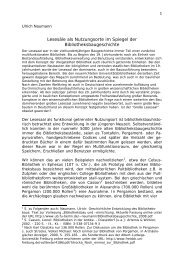
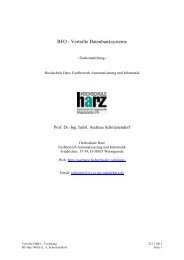
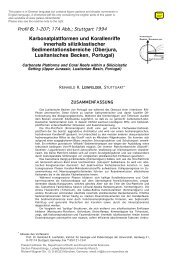
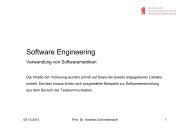
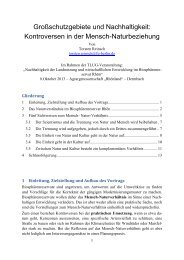
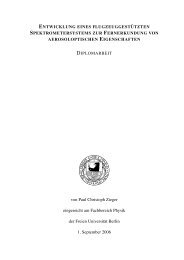
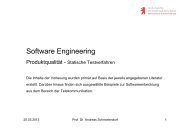
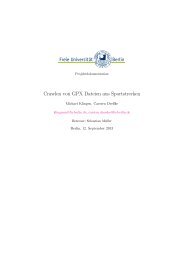
![[UNBEGRENZTE MÖGLICHKEITEN?] - Userpage](https://img.yumpu.com/22343335/1/184x260/unbegrenzte-moglichkeiten-userpage.jpg?quality=85)
